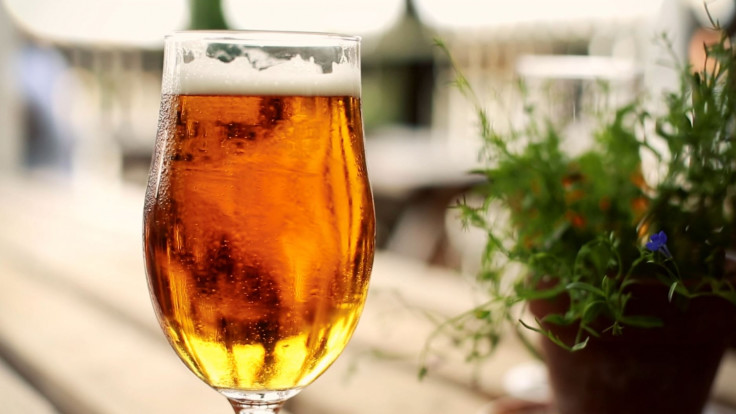Dry January: Pros and cons of not drinking alcohol for a month

Two major charities have launched campaigns encouraging people to stay off the booze for the month of January.
Alcohol Concern and Cancer Research UK are both running "Dry January" events, saying that staying sober for 31 days will make you feel healthier, lose weight and save money, all while raising money for good causes.
What's not to love? Research behind dry January is mixed – some experts say going from a bout of heavy drinking to nothing, followed by February binge is worse than moderate drinking. Then again, others say the month off is better than nothing.
Ahead of January 2015, IBTimes UK looks at the pros and cons of spending January sober.
Benefits of dry January
1. You will save money. Unless you all of a sudden become a truffle connoisseur. Research by MacMillan Cancer Support found earlier this year that the average person in Britain spends about £50,000 on alcohol during their lifetime – about £787 per year.
2. You will probably lose weight. Alcohol has more calories than most care to acknowledge, highlighted by the Royal Society for Public Health earlier this year.
3. Sleep and energy levels will improve. Alcohol is known to disrupt sleep patterns, which can lead to lower energy levels. The body also treats alcohol as fat, which reduces the production of ATP (the muscle's source of energy), resulting in lack of energy and loss of endurance.
4. Your skin will improve. Many studies have shown the effect of alcohol on appearance. Alcohol leaves the body dehydrated, meaning you look bloated, red and dry.
5. No hangovers.
6. Better sex. Alcohol is a central nervous system depressant – an important part of arousal and orgasm. It can make getting an erection more difficult, as well as delaying or preventing orgasm.
7. Helps people reassess relationship with alcohol. Many people who have spent a month sober say it helps them realise how much they drank before and that they needed to cut down. Alcohol Concern research found that six months after Dry January, participants drank less per day and binge drank less.
Negatives of dry January
1. It doesn't last. James Ferguson, a liver specialist at Queen Elizabeth Hospital Birmingham, told NPR: "I don't think taking one month a year off alcohol makes any difference. It's more important to cut back generally."
2. If people return to their pre-dry January drinking levels in February, health benefits are lost. Dr Christian Jessen told the Daily Mail last year that people can even end up drinking more: "I worry that heavy drinkers aren't embarking on this period of abstinence because they want to radically change their habits forever. Far from it. They simply want to be able to feel they can drink like fishes from 1 February."
3. The British Liver Trust is not a big fan – it says people should drink sensibly throughout the year. It is looking to measure the health benefits of dry January in a study it is currently recruiting for. Find out more details here.
4. Your social life might suffer. In a study by New Scientist, the only negative of dry January was that people reported less social contact.
5. It could be a sign of alcohol dependence. Tom Sykes for the Daily Telegraph said being able to commit to a month without alcohol creates the illusion people are not addicted to alcohol – but in reality shows they could be struggling to control their drinking habits.
Round-up
Dry January has lots of health benefits if it results in a change in your drinking habits year-round. If not, don't bother.
© Copyright IBTimes 2025. All rights reserved.






















